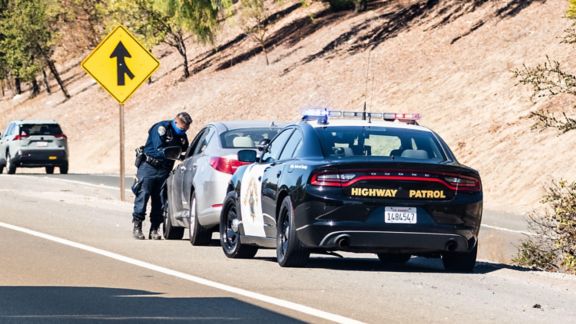
Jim’s areas of expertise include behavioral studies in traffic safety, evaluating impaired driving countermeasures, research on underage drinking, and determining the effectiveness of various alcohol policies and safety issues associated with the legalization of marijuana in the states. Jim’s recent projects include a study of the minimum legal marijuana use age 21 laws and enforcement in California, determining the prevalence of certain drugs found in the blood of serious and fatally injured drivers from seven trauma centers around the country, a public survey of underutilized strategies to reduce traffic fatalities, a special impaired driving enforcement effort in Maryland, and a study of DUI in Miami-Dade County (FL).
Jim’s current projects include “State of Knowledge and Practice – Impaired Driving Technology,” sponsored by the National Highway Traffic Safety Administration (NHTSA). This involves a comprehensive literature review and investigation into the extent of use of the technology. Another project funded by NHTSA is “Successful Impaired Driving Task Forces” which involves discussions with State Impaired Driving Task Force members to determine best practices. In addition, Jim has a project “Examine Issues with Prosecuting Driving-Under-the-Influence-of-Drugs (DUID) Cases” funded also by NHTSA in which discussions with state prosecutors will document issues with prosecuting DUID. An example of a past project was “Public Acceptance of Underutilized Strategies in Traffic Safety” funded by the National Safety Council which involved a survey of public support for specific countermeasures in traffic safety.
During the 1990s, when states were considering lowering their illegal BAC limit for driving from .10 g/dL to .08 g/dL, Jim co-authored one of the first studies showing the effectiveness of laws lowering the BAC levels on reducing impaired driving fatal crashes. Subsequently, Jim was invited by officials in 12 states to provide expert testimony on the merits of lowering the BAC to .08 (DE, DC, IL, IN, MD, MN, MO, NE, NC, TN, TX, and WV). In 2000, President Clinton signed a bill providing a strong incentive for all states to lower the BAC limit to .08; all states and the District of Columbia eventually adopted the law. More recently, Jim collaborated with Dr. Robert Voas on various articles demonstrating the rationale and summarizing the evidence to lower the BAC limit from the current .08 g/dL to .05 g/dL. With co-author Michael Scherer, he conducted a meta-analysis of studies around the world evaluating various BAC limits. It was concluded that if the U.S. adopted a .05 BAC limit nationwide, it could save up to 1790 lives each year.
Based on an accumulation of his research studies and publications over many years, Jim was named to Stanford University's Top 2% Scientists in the World for 2023. He also received the Chairman's Award from the Washington Regional Alcohol Program for his contributions over many years as a member and treasurer.
Quick Links
Education
MS
State University of New York at Buffalo
BS
State University of New York at Buffalo
Appointments & Affiliations
Strategic Planning | 2022 - 2024
International Council on Alcohol, Drugs & Traffic Safety
Consultant | 2019
United Nations
Honors & Awards
Top 2% Scientists in the World | 2023
Stanford University
Chairman's Award | 2023
Washington Regional Alcohol Program (WRAP)
Award of Merit | 2019
Association for the Advancement of Automotive Medicine (AAAM)
Haddon Award | 2019
International Council on Alcohol, Drugs, and Traffic Safety (ICADTS)
Who’s Who in America | 2018
Marquis
The Donald F. Huelke Lifetime Membership Award | 2016
Association for the Advancement of Automotive Medicine (AAAM)
Kevin Quinlan Advocacy Award for tremndous dedication, conviction, and leadership to making Maryland's roadways safer, specifically through impaired driving prevention | 2015
Maryland Highway Safety Office
Project Contributions
Publications
-
opens in new tab"Mapping the Complex Causal Mechanisms of Drinking and Driving Behaviors among Adolescents and Young Adults."
Journal Article | June 28, 2022
-
opens in new tab"Alcohol-Related Deaths among Young Passengers: An Analysis of National Alcohol-Related Fatal Crashes."
Journal Article | June 23, 2022
-
opens in new tab"A Guide for Statewide Impaired-Driving Task Forces."
Project Report | April 25, 2022
-
opens in new tab"The Effectiveness of Alcohol Monitoring as a Treatment for Driving-While-Intoxicated (DWI) Offenders: A Literature Review and Synthesis."
Journal Article | December 15, 2021
-
opens in new tab"State Alcohol Ignition Interlock Laws and Fatal Crashes."
Journal Article | November 22, 2021
-
opens in new tab"Time to Licensure for Driving among U.S. Teens: Survival Analysis of Interval-Censored Survey Data."
Journal Article | November 17, 2021
-
opens in new tab"Drug and Alcohol Prevalence in Seriously and Fatally Injured Road Users before and during the COVID-19 Public Health Emergency."
Project Report | August 17, 2021
-
opens in new tab"Association between a Delay in Driving Licensure and Driving while Impaired and Riding with an Impaired Driver among Emerging Adults."
Journal Article | March 12, 2021




